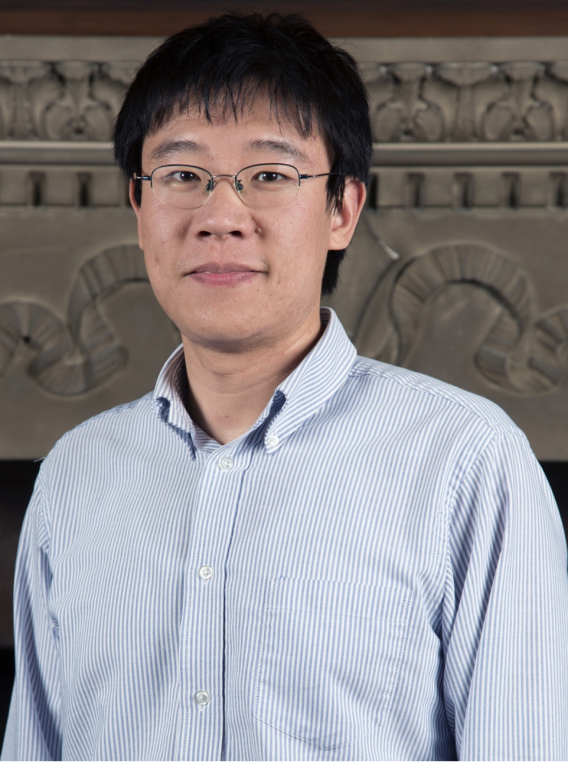Locomotion of flagellated bacteria: From the swimming of single bacteria to the collective motion of bacterial swarm - Xiang Cheng, University of Minnesota
Xiang Cheng, Associate Professor in the Department of Chemical Engineering and Materials Science at the University of Minnesota
Abstract: A flagellated bacterium exhibits fascinating swimming behaviors both as an individual cell and as a member of collectively moving swarm. I discuss two recent experimental works in my group on the swimming behaviors of Escherichia coli, a prominent example of flagellated bacteria. First, we study the motility of flagellated bacteria in colloidal suspensions of varying sizes and volume fractions. We find that bacteria in dilute colloidal suspensions display the quantitatively same motile behaviors as those in dilute polymer solutions, where a size-dependent motility enhancement up to 80% is observed accompanied by a strong suppression of bacterial wobbling. By virtue of the well-controlled size and the hard-sphere nature of colloids, this striking similarity not only resolves the long-standing controversy over bacterial motility enhancement in complex fluids, but also challenges all the existing theories using polymer dynamics in addressing the swimming of flagellated bacteria in dilute polymer solutions. We further develop a simple hydrodynamic model incorporating the colloidal nature of complex fluids, which quantitatively explains bacterial wobbling dynamics and mobility enhancement in both colloidal and polymeric fluids. Second, we study the collective motion of dense bacterial suspensions as a model of active fluids. Using a light-powered E. coli strain, we map the detailed phase diagram of bacterial flows and image the transition kinetics of bacterial suspensions towards collective motions. In particular, we examine the configuration and dynamics of individual bacteria in collective motions. Together, our study sheds light onto the puzzling motile behaviors of bacteria in complex fluids and provides insights into the collective swimming of bacterial suspensions relevant to a wide range of microbiological and biomedical processes.

About: Xiang Cheng received his B.S. in physics from Peking University in China in 2002. He then moved to U.S. and obtained his Ph.D. in physics from the University of Chicago in 2009. He worked as a postdoctoral associate in the Department of Physics at Cornell University from 2009 to 2013. He is currently an associate professor at the Department of Chemical Engineering and Materials Science at the University of Minnesota. Dr. Cheng has received several academic awards, including Arthur B. Metzner Early Career Award from Society of Rheology, NSF Career Award, Packard Fellowship, DARPA Young Faculty Award, 3M non-tenured faculty award and McKnight Land-Grant Professorship. His research group studies biophysics and soft materials physics in experiments, with a special focus on the emergent flow behaviors in biological and soft matter systems. Particularly, his research interests include bacterial locomotion, hydrodynamics of active fluids, rheology of colloidal suspensions and dynamics of liquid-drop impact processes.
